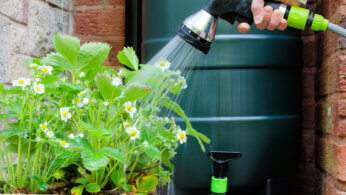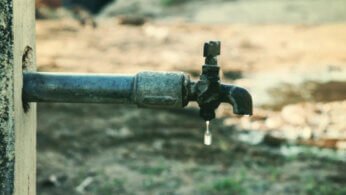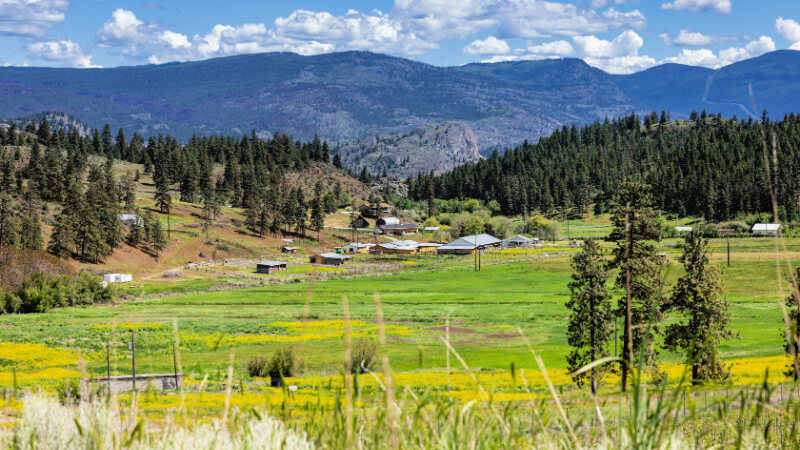
BC Land for Sale – What You Need to Know About Real Estate and Water Well Systems in the Province
Our office receives hundreds of phone calls a year regarding BC Land for Sale, people requesting information about purchasing Land for Sale in British Columbia, and what they need to know when buying property in a rural area of the province. More often than not, the #1 question is typically about servicing BC Land for Sale with a water source.
Why this Article is Important for Purchasing BC Land for Sale
For this article, BC Land for Sale includes real estate in British Columbia that will require or is currently serviced by a water well and/or septic system.
Suppose a municipal or community water system does not service property or land for sale in British Columbia. In that case, most properties in the province will either have or require a private water well or septic system.
I’m Colleen Roberts; I did work in the BC Real Estate industry for ten years, followed by another 30 years in the BC Groundwater and Water Well Industry. I’ve assisted purchasers and sellers for many years with navigating through the maze of information often required when purchasing, building, or subdividing properties serviced by water wells and septic systems in British Columbia, and I continue to do so.
Disclosure:
This article is not intended to be used as legal advice (Colleen is NOT a lawyer). Consider this information as a guide for purchasers and sellers who may need information when purchasing BC land for sale in a rural area. If you require legal advice, please consult with a BC Lawyer.
The Rural Migration Trend in British Columbia
Millions working from home worldwide during COVID-19 proved that you don’t need to be in an office downtown to get the job done. As a result, many are planning for the “new normal” with good rural internet providers; they see remote working as an opportunity to move out of the city into a rural area with more room and lower property prices.
With real estate agents across British Columbia seeing an increase in inquiries from urbanites for BC Land for Sale, including farms for sale, rural land for sale, timberland for sale, and lake cabins for sale in rural areas, potential sellers see it as an opportunity not to be missed.
Between Covid-19 and rural internet connections, it’s been a game changer for rural area BC land for sale, creating more demand for specialized information and real estate agents experienced with rural area land for sale in British Columbia. This market requires in-depth knowledge to protect both buyers and sellers.
BC Land for Sale and What You Can’t Afford to Ignore
Whether you are a buyer or seller, however, there’s one aspect you can’t afford to ignore: Water!
Rural properties in BC are typically not connected to municipal water supply or sewage systems. Domestic water for human consumption and other purposes—such as animals, irrigation, or swimming pools—is generally provided via one or more private water wells located on the property. Buyers, therefore, need to educate themselves on what to look for when investigating potential properties—and when choosing a real estate agent. Sellers, in turn, need to be able to verify the year-round quality and quantity of their well water or water source.
“We seeded one acre of grass, bought turf for a grassed dog run, and planted just over 720 cedar trees to create a hedge around our property. We used an old dug well linked to a new dug well we installed during construction for irrigation.
Both wells ran dry by the end of July 2018.”
— E & E Cameron, Parksville
Buyer Beware: Before you Buy BC Land for Sale with a Water Well.
Most homebuyers would never dream of purchasing a home without arranging for a thorough home inspection. You may be surprised that some BC property owners have no idea they’re even using well water on their property—until the well runs dry!
That’s often when the headaches—and the expense—begin.
“We drilled wells at three locations as far the bedrock at the cost of $33,896.76. The first well was dry, and the second and third wells—which are the source of our potable water—were only good for 0.5 and 1.0 gallons per minute (GPM), respectively. After our irrigation wells dried up, we drilled the fourth well at the cost of $7,381.50, but it was also dry.”
— E & E Cameron, Parksville
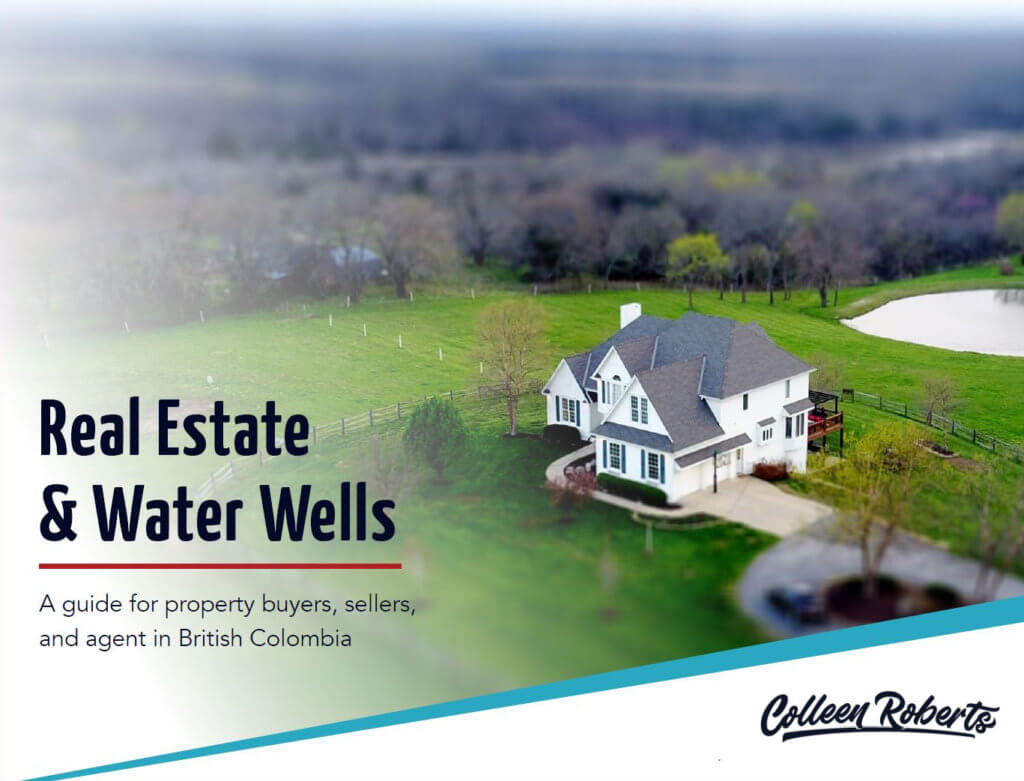
5 Steps When Buying BC Land for Sale in a Rural Area
People often purchase a home with some property or BC land for sale without knowing what to look for or do when the water supply consists of a private drilled well and septic system. Here are five aspects you need to think about before, during, and after your purchase:
- Choosing a real estate agent
- Exploring the market
- Making an offer
- Closing the deal
- Looking after your water supply

Choosing the Best BC Real Estate Agent for You
If you’ve always lived in a home connected to a municipal water source and are looking for BC land for sale, find a BC Real Estate agent with lots of experience in rural area properties. Real estate deals involving water wells and septic systems, among many other things, require an experienced real estate agent with this specialized knowledge.
Reputable agents with several years—if not decades—of experience in your chosen province area are there to guide and protect many BC rural land buyers. Real estate agents without adequate knowledge, experience or resources often involve themselves in BC land sale deals, failing to protect their clients.
Don’t hesitate to shop around, interviewing three or more agents before selecting the one you feel you can trust and will represent your best interest when purchasing BC Land for Sale.
You need a licensed, trained, insured, ethical business real estate agent who understands what it takes to purchase Land for Sale in BC, including raw land, ranches, working farms, hobby farms, agricultural land, and rural development land. Most of them will have years of hands-on BC real estate experience with a deep understanding of the specialized knowledge required to work in rural land sales.
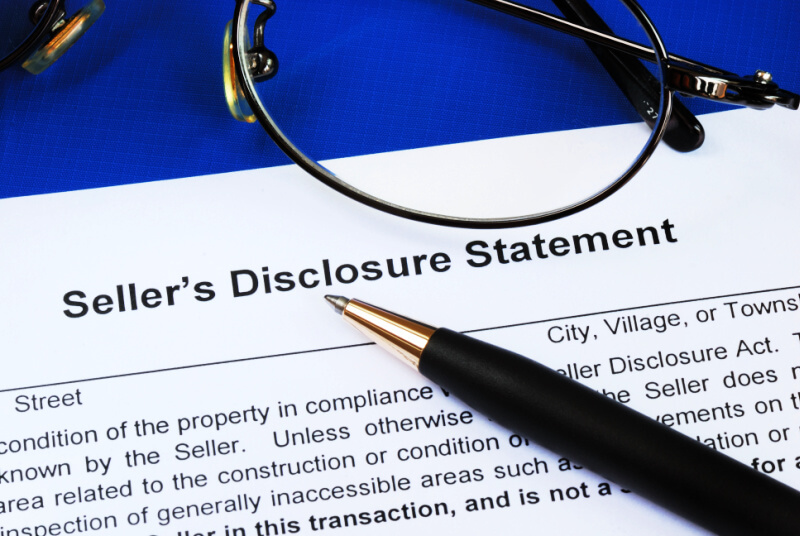
Water Wells and Non-Disclosure
Non-disclosure when purchasing real estate with a water well should be expected in British Columbia, so it’s important to do your due diligence before signing with an agent or finalizing your purchase.
One way to identify a trustworthy agent is to ask if their service includes collecting the water samples personally, sending them to the lab, and delivering the reports. The answer should always be a quick and definite “NO.”
What is a Conflict of Interest?
No agent wants a problem with a deal, I understand that… but bad water wells can be a deal-breaker, and most agents know that too. The lab may discover a contamination issue or a well pumping test that quickly determines the well goes dry; these are potentially very serious problems with a private water source. That’s why most professional BC real estate agents will not get involved in sampling well water and water testing—it’s a conflict of interest for a sales agent to do so, and most agents won’t if they are aware of the possible consequences.
While unscrupulous sales agents are few and far between, it’s best to keep everything above board by looking after your water testing, and it’s best to work with a third party with experience with water sampling and interpreting the results of a water analysis report.
Poor Water Sampling Procedures May Cause Unnecessary Concern
Remember, as a purchaser, you are concerned for your best interests, but the vendor must also be considered and protected equally. This article focuses on BC land for sale and water well issues, we must remember many water systems do not have a problem, but this can not be determined without testing and conducting a water well inspection.
If someone draws water samples and does make an error while sampling, resulting in a failed water report from the lab… this is not good for the seller either, especially if there isn’t a problem! Everyone has to go the extra mile, typically on the 11th hour, to determine if the well has an issue or if improper sampling procedures caused failed water report.
What? Chlorine in Well Water Samples!
This is an issue, and it’s not uncommon for water samples to arrive at a lab containing a chlorine residual, city water samples replacing real well water samples. While this trick may prevent a failed report for a contaminated water well from upsetting a deal, it’s unethical and potentially dangerous!
Always try to hire an independent water well inspection company in your local area that handles the water samples and completes the water well system inspection when possible.
Local Water Treatment and Well Pump Companies
Remember, water treatment companies are not independent or at arm’s length either; failed lab reports, contaminated water wells, and deteriorated water systems, including the well pumps, often become an opportunity for upselling equipment and water treatment systems. Causing another possible conflict of interest that can easily cost someone thousands of dollars unnecessarily.
When a real estate deal is ready to go down the drain, and there is lots of pressure to keep it together out of fear or duress, people will often agree to just about anything, never thinking they are being misrepresented.
Replacing a Water Well System is Costly
When you are talking about a private water system on BC land for sale that may be worth more or less $50,000 to $75,000 to replace, if even possible, with the addition of a lot of time and effort involved, I think we should be dealing with the water systems on BC land for sale accordingly.
Why is the onus put on the purchaser to discover the problems with a water well system on a BC property for sale? A lot of money can be invested into all these inspections, and at the end of the day, the purchaser walks from the deal often if they are lucky. Others may not be and can certainly pay the price,
Most people don’t want a well that goes dry or offers very limited water for part of the year; wells can also experience seasonal changes. I speak with people almost daily who have been left in these situations with nothing to fall back on except their resources, and almost always, they would have walked from the deal had they known about the water issues they would have to live with.
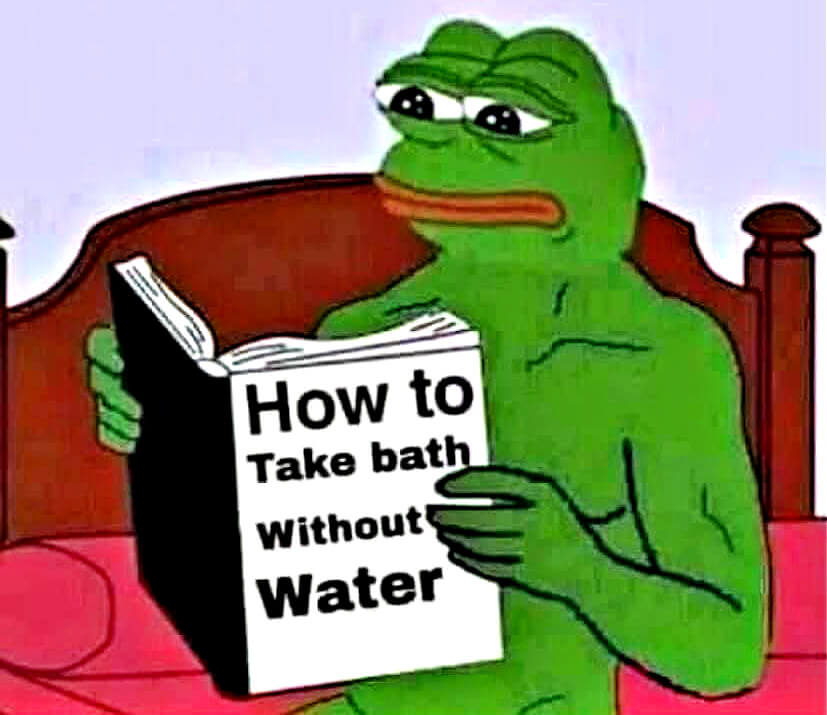
Water Well Problems Typically Are Not Sudden
Much of this can be and should be disclosed when listing rural BC land for sale, vendors know when they have a water well issue, and that is why there is so much non-disclosure when it comes to the sale of BC land for sale. The cost of repairing or replacing a well is not something the vendor will often want to do; if it has been an ongoing issue, they would have likely resolved their water well problem before listing their property for sale. Water well problems are often a process of gradual deterioration; typically, they don’t suddenly occur.
The property may get sold without replacing or repairing a well, leaving the new owner to quickly discover that they may need to be considering the high legal costs of remedying the water well problem.
Rather than seeking legal advice, the new owner either limps or lives with the situation. They may install a new water well and pumping system if they find their water well situation unacceptable and are financially able, often costing tens of thousands of dollars.
Purchaser Agrees to Purchase BC Land for Sale “as is where is”
When the BC real estate market is hot, there can be numerous competing offers, causing the fear of loss and panic buying that I mentioned earlier. Purchasers are told to make their best offer if they want the property, as they will compete with other buyers.
The best offers for a seller are often “subject-free” regarding the water well system. Still, the counteroffer that comes back to the buyer may include a clause stating the “purchaser agrees to purchase the property as it where is” at this point, often without any opportunity for water testing or water well inspection!
But what else can you expect from a buyer coming from the city, perhaps who has never been on a water well or a septic system and is represented by a BC real estate agent who may not even know what a water well looks like? There needs to be much more accountability in place to protect.
BC Land for Sale – Sellers and Water Test Results
Water sampling process can leave room for error if not done correctly; if a possible contamination issue is indicated on a lab report, it may not be correct due to improper water sampling, etc. As a seller, you are informed that the report indicates a contaminated water well. This may not be the case at all, and you don’t want to have your well labeled as contaminated especially by a non-expert.
Having access to past water reports is essential for monitoring the quality of your well water for comparing prior results.
Before your property goes onto the market, it’s important that your water system is inspected and the water is tested. Verify the quality of your well water for your own protection, I always recommend an essential drinking water test, it’s affordable and perfect for a property owner and a purchaser as it complies with the Canadian Drinking Water Guidelines which ensures your water is safe to drink.
Once an offer is presented on your property, the purchaser will still do an independent water test on your well water, but if there is a water quality issue, you will have your own report to compare.
Try to take care of all water well issues before listing; it just makes the selling of BC Land for Sale so much easier and less costly than having a laundry list of water well problems pop up on the eleventh hour that may cause the purchaser or mortgage lender to walk away.
If there is any concern, it may be important to test lead in drinking water in British Columbia.
Note: There are reliable, fast, easy ways to test well water for toxins, lead, coliform, and other contaminates. Next... Water-related leading questions to ask a potential realtor
Learn from the Experts When Buying or Selling Land for Sale in BC
Meet some of the best Real Estate Agents in British Columbia – licensed, trained, insured, ethical business specialists who understand what it takes to sell or buy land for sale.
Water-Related Leading Questions to Ask a Potential Real Estate Agent Prior to Purchasing BC Land for Sale
- How many properties without a municipal water connection have you sold?
- What should I know before buying a property with a drilled water well for potable water?
- What should I know about water licensing in British Columbia
- How do I have the water system and water well inspected for condition and capacity?
- Should a pumping test be performed to insure the well produces adequate water?
- What steps did you take to confirm the availability of a secure source of potable water?
- Have any of your clients experienced problems with their water wells after purchasing through you?
- Can you provide a list of clients I can call who purchased properties with water wells?
- Who is responsible for collecting water samples and sending them to the lab for water quality tests?
- Is it a conflict on interest for a water treatment company to be handling my water samples?
- What conditions will be included in an offer to ensure I have a year-round, safe water source?
- How will it be determined if a water well on a property for sale in BC goes dry at any time?
It’s important to hire a competent real estate agent to represent both purchaser and sellers of BC land for sale serviced by a water well, they should be very knowledgeable about selling Real Estate with Water Wells & Septic Systems
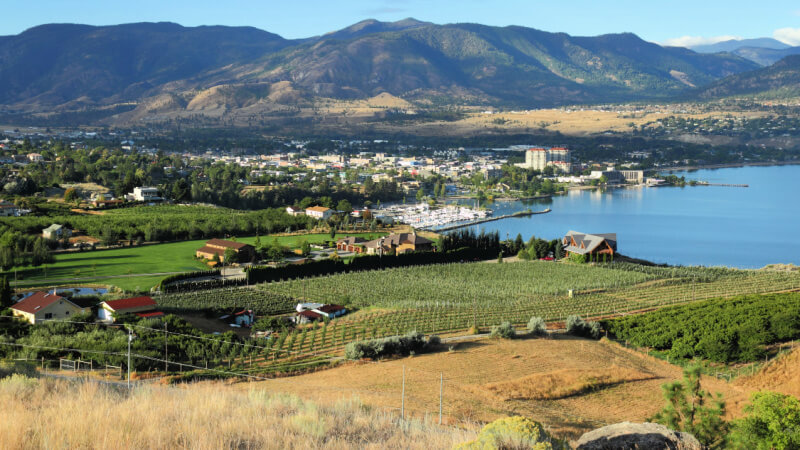
Purchasing BC Land for Sale – Suburban vs Rural Area Properties
Once you’ve chosen an agent and identified potential real estate in BC that meet your needs, due diligence begins. If you’re the independent type who likes to do things themselves—or are buying a vacant property—this step is even more critical.
Purchasing a rural property is very different from buying one with a municipal or community water supply, with water awareness and conservation the rule rather than the exception. While there are many reliable water systems located rural area BC land for sale, when the anticipated—and indispensable—water supply dries up, buyers can find themselves in a highly stressful—and potentially costly—situation.
“We drilled wells at three locations as far the bedrock at the cost of $33,896.76. The first well was dry, and the second and third wells—which are the source of our potable water—were only good for 0.5 and 1.0 gallons per minute (GPM), respectively. After our irrigation wells dried up, we drilled the fourth well at the cost of $7,381.50, but it was also dry.”
— E & E Cameron, Parksville
Water well issues are often not discovered until a purchaser has moved into their new property. There’s little protection in British Columbia when dealing with private water well systems, with many deals being a situation of “buyer or seller beware”. Many buyers purchase a property only to find their wells drying up in mid-to-late summer (especially true of shallow-dug wells), but drilled wells can just as easily not produce enough water and go dry.
If the water becomes an issue, your only recourse is to try to repair a well (unlikely), drill a new well, or initiate a lawsuit. All options are costly, but taking the matter to court won’t give you the necessary water. Instead, do your due diligence upfront and not get yourself into the situation in the first place.
Remember, sellers’ and buyers’ interpretations and opinions regarding a water well may vary significantly. A seller used to living in drought-like conditions may see a seasonably dry and perfectly normal and will skillfully turn bath water into laundry water. However, a buyer from the city may not view reusing bath water to do the laundry as acceptable… it happens.
Some water wells, even with careful rationing, will go dry, leaving the property owner with little choice but to haul water bulk water until their private water well begins to recharge, which can take months, it can turn into an awful situation quickly, and most people are not prepared to live without a reasonable supply of water.
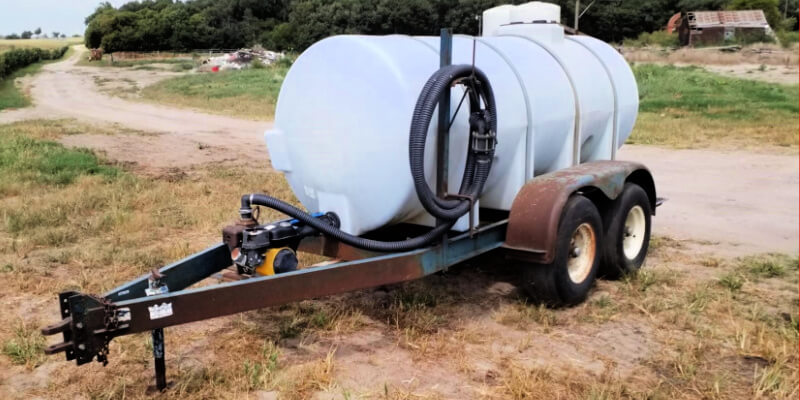
Has Bulk Water Been Hauled to the Property Before?
One aspect not often freely disclosed is whether water has ever been hauled to the property and why? Don’t be afraid to call the local water hauling companies near you and ask if the property’s address is in their database. The time spent may save you a lot of headaches… unless you want to haul water too.
Additional water storage tanks, rain barrels, a rainwater collection system, and landscaping in poor condition or lack of may indicate a property lacks water. Often a property owner will have a water tank on a trailer that is used to make regular trips to fill with water.
The property owners often choose to haul smaller amounts of water themselves instead of relying on expensive bulk water haulers, causing them to have to fetch water more frequently. Whether you can afford a water hauling company or need to DIY with a trailer-mounted water tank, hauling water is never enjoyable.
Water Testing in British Columbia & What You Need to Know
For those who have a private water well or water supply, the responsibility for safety and treatment is sole responsibility of the property owner and or landlord. As a property owner in British Columbia with a water well you are responsible for assuring your water is safe.
This is a Good One – Water Tank Storage Systems
Over the past 30 years, I have learned that a BC property owner who decides to sell their property with a water well issue (either quality or more often quantity) may decide not to disclose tp prevent the loss of a sale.
The vendor may have a large water storage tank and re-pressurization system on the property. The tank appears to be connected to the water well and looks pretty good, a little too good maybe. Sometimes a vendor will decide to clean their water storage tank and even pay for a water hauler while the property is on the market, keeping the water storage tank clean and topped off with crystal clear potable water.
An unaware purchaser will see the clean water from the water storage system running through the water taps in the home; the water quality looks fantastic,right? Water samples are collected, and it’s not a surprise that the water quality report indicates the water meets the Canadian Drinking Water Guidelines.
When I see a report that clean, I would look that as maybe just a little too good to be true because it probably is, especially if it’s raw water from the well supposedly maintaining the water storage tank. If you have lots of experience with water chemistry and systems, you’ll pick up on this tactic when you come apon it.
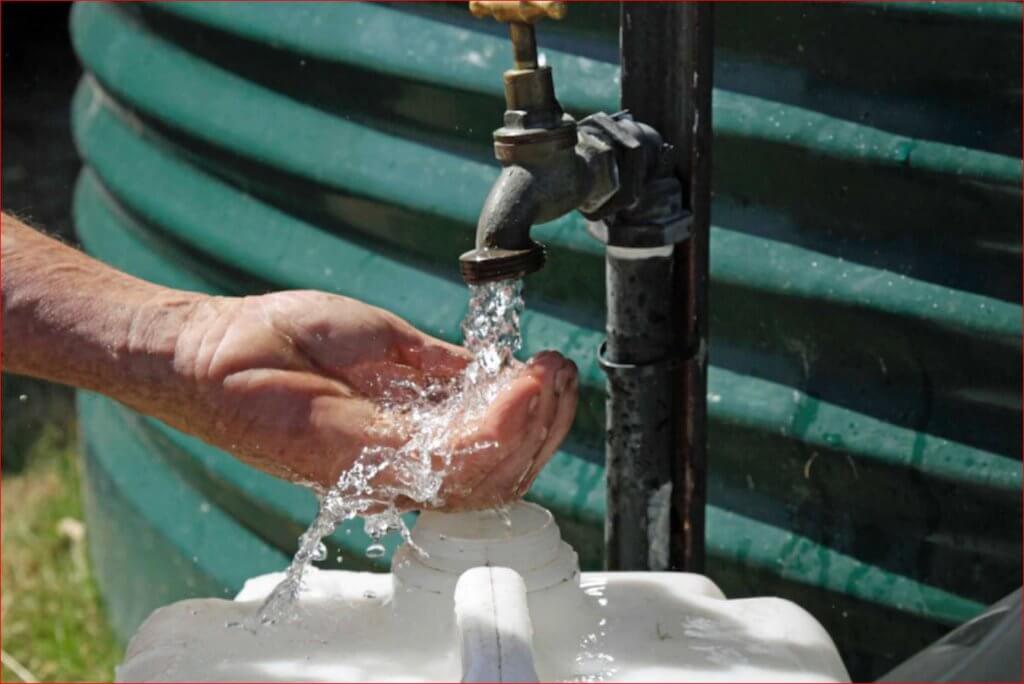
Every once in a while some severe cases of misrepresentation will become apparent; some situations are just downright fraudulent and can become a real problem for an unaware purchaser or real estate agent in British Columbia. Unfortunately, it’s often the purchaser stuck will the cost to resolve the problem.
Whatever a vendor warrants, get it in writing, and do your inspections, and do water testing; it’s just less expensive than paying a huge well drilling and well pump invoice to replace what you might have thought you had.
It’s important that situations like the above example can be noticed quickly; even the most experienced real estate agent may be fooled by a seller; there are lots of tricks if that is the game that a vendor wants to play. Fortunately, this example leans on the side of the extreme but be aware even though most sellers would not use fraudelent tactics some will. Yep, even the sweet little old lady, I’ve really seen it all.
BC Land for Sale – The Good, the Bad, and the Ugly
I would like to quickly point out that there are many types of water systems in rural areas of British Columbia… some water well systems are GREAT; the owner has a good water well and has maintained the system nicely. Other water systems are not so good, and then there are really bad systems that should not even be deemed a water system. I hope that by providing this information, it will help prevent a problem for you down the road when purchasing real estate with a water well in British Columbia.
Important Water-Related Questions and Documentation
When considering BC land for sale ask questions about the water well and request copies of the well record also known as a well drilling report or well log along with water quality test results to understand the property better. If the property requires financing, your mortgage provider may request some—or all—of these documents before committing to a mortgage.
Documents that the seller or their agent should disclose include:
- A copy of the well record (well drilling report), if available, the report may also be available online.
- All past water quality test results (many property owners test annually)
- Yield test or flow results if a pumping test has ever been performed on the well.
- Closed wells (decommissioned) on the property
- Installation records and receipts for the mechanical side of the system – pump, pressure system, water storage system, water treatment, filtration, and sterilizers, etc.
It’s important to understand that you are in a “Buyer Beware” situation when it involves Real Estate and Water Well is British Columbia. You have every right to expect full disclosure from the vendor but the truth does not always prevail and once you are the proud new owner of a water well that notoriously goes dry each summer you will find that you typically have very little protection after the fact, no one is going to pick up your phone call and offer to drill you a new water well Do your due diligence prior to purchasing BC land for sale.
Ask the right questions and conduct a water well system inspection, water tests and maybe a pumping test to insure that you will not need to spend upwards to $50,000 to install a new well and water system.
What Happens When the BC Real Estate Market is HOT!
Plenty happens when people are under pressure to make real estate purchasing decisions because of fear of loosing out on a deal. Normally, water well inspections and water test reports take up to 2 weeks to complete, mostly because of the analytics. Most water test laboratories require 10 – 12 days to complete the package for a private water well located on BC land for sale.
When the real estate market is booming in British Columbia purchasers may be told at the time of offer that they do not have 2 weeks to do their due diligence on the well as they may be completing with a dozen other offers on the BC land for sale so they take their chances and make an offer without any subjects pertaining to the water well.
Water well replacement is very costly, the cost of drilling a well in British Columbia has increased substantially over the past couple of years, when you purchase BC land for sale and don’t account for the cost to drill a well you might be in for a surprise.
Once a purchaser has taken possession of their new property that’s when the truth often becomes apparent. We receive many requests for water well drilling estimates throughout the drilling season, from about June to January and the majority of them is because the existing well has gone completely dry or is not producing enough water to even sustain a home.
I always ask the property owner how long they have been on the property they, often admit they are new to the property and were told they had plenty of water only to discover they have a major water issue… the well has gone dry and often the well goes dry every summer but they were not informed.
BC Land for Sale – Who Pays the Bill?
At this point if you are new to a property and your well goes dry I promise, there will not be a flurry of people stepping up to the plate to help you with your new financial burden, I’ve heard the stories… hundreds of them over the past 30 years.
If you are looking to purchase BC land for sale serviced by an existing water well you are in a “Buyer Beware” situation in British Columbia and unless you want to throw a ton of money at legal fees you may as well accept that you will most likely be paying the entire cost to drill a new water well and installing a new pump, pressure system and maybe a water treatment system too.
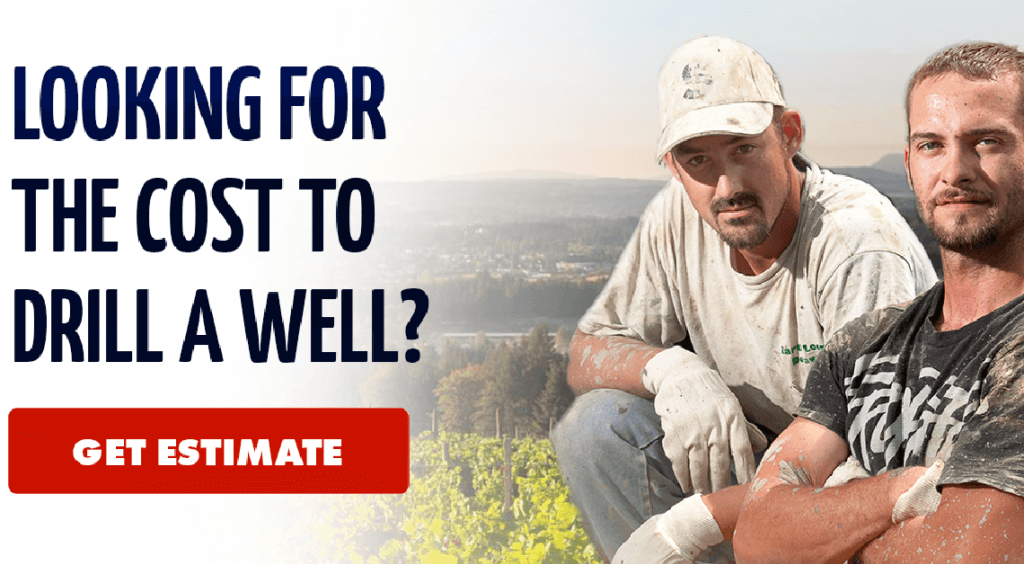
What is the Cost to Drill a Water Well in BC?
The cost of drilling a well in British Columbia will vary greatly. It depends on so much. If you want to learn more about the BC Well Drilling Cost it’s important to have a detailed well drilling estimate completed for the subject property.
Well drilling costs may range from about $12,000 on the very low end to $50,000 on the high-end and that’s if you are only drilling once and don’t drill a dry hole on the first attempt. There are other costs to installing a new water system once the well is drilled such as the well pump, water system, and possibly water treatment system.
Whether you are purchasing BC land for sale that does not have an existing water well or you need to replace an existing water well it will require detailed well drilling cost estimate to determine the cost to drill in your local area.
You can see that choosing to work with an experienced real estate agent when purchasing land for sale in a BC rural area may prove to be invaluable, there’s more to consider than just the water well system and what this article covers but rural area real estate agents will protect you better than an agent that has little to no experience with these types of properties.
BC Land for Sale with a Water Licence
If groundwater is used for any non-domestic purpose, the property owner must have a water licence (or have applied for a water license by the deadline of March 1, 2022.) If that’s the case, request copies of:
• The water license
• A recent invoice from Front Counter BC detailing annual water rentals and any outstanding yearly rentals or late payment charges
When a water license is attached to a property, it’s transferred to the new owner with the associated water fees and rentals, including any unpaid or overdue amounts. If that’s the case, talk to the current owner about updating the account.
You can search the water rights databases to determine whether a water license has been issued to the property to use groundwater for non-domestic purposes.
What Uses in British Columbia are Deemed for Domestic Water Purposes?
Generally, domestic water use in BC includes the use of water for basic household water use as well as providing water for animals and livestock used by the household, this does not include commercial uses or pets.
Under section 2 of the Water Sustainability Act, “domestic purpose” is defined as follows:
“domestic purpose” means the use of water for household purposes by the occupants of, subject to the regulations, one or more private dwellings other than multi-family apartment buildings, including, without limitation, hotels and strata titled or cooperative buildings, located on a single parcel, including, without limitation, the following uses:
(a) drinking water, food preparation, and sanitation;
(b) fire prevention;
(c) providing water to animals or poultry kept
(i) for household use, or
(ii) as pets;
(d) irrigation of a garden not exceeding 1,000 m2 (10,763.9 sq. ft.) that is adjoining and occupied with a dwelling;
Examples of water users that fall under “domestic water use purpose.”
There may be different situations that arise that also fall into the domestic use purpose. Below are common examples that are often for domestic use purpose.
- Landowner(s) supplying water to one primary dwelling.
- Multiple owners of a parcel of land (e.g., the land title for the parcel is in joint ownership or ownership in common) who jointly own, operate, and maintain the water supply system and use the water for household purposes for multiple dwellings on the parcel of land (other than multi-family buildings, such as apartment buildings, strata developments or cooperative developments). This is different from a strata-titled development where the strata corporation’s common property includes the water supply system, in which case the strata corporation or cooperative would require a license for waterworks purposes.
- One landowner owns, operates, and maintains the water supply system that delivers water to a private dwelling rented or leased to others. The owner may have multiple rental dwellings on the parcel.
Learn More About Water Licensing in British Columbia
Domestic Water Use in British Columbia
Water Licensing and Rights in British Columbia
British Columbia Water Sustainability Act
BC Water Sustainability Act Groundwater Licencing Deadline
British Columbia Water License Deadline
A critical deadline for select groundwater users expired on March 1, 2022
March 1, 2022 was the final deadline to apply for a water licence for “existing groundwater users in British Columbia” – those who were using groundwater from a water well or dugout on or before Feb. 29, 2016 for non-domestic purposes such as irrigation, commercial or industrial use. A BC water licence is not required for a household well or groundwater used for domestic purposes within the province, such as watering small lawns and gardens not exceeding not exceeding 1,000 m2 (10,763.9 sq. ft.)
There could be serious consequences for property owners who missed the March 1, 2022 deadline. Existing groundwater users who have not applied by the deadline will be unauthorized and must stop using water immediately.
British Columbia property owners who missed the deadline will be treated as a “new user”, they will lose recognition of their historical date of first use, and the licence may be refused in water-stressed areas. The historical date (FitFir) is crucial because older licences get priority access to water during water shortages.
First in Time – First in Right (FitFir)
Water rights in BC may be exercised under a system of priorities according to their respective priority dates. This is commonly referred to as ‘First in Time, First in Right’ or FITFIR. During times of water scarcity, licensees with the earlier priority dates are entitled to take their full allocation of water over the junior licensees.
For example a water licence with a 1930 priority date would have precedence over a licence with a 1960 priority date, regardless of the purpose for which the water is used. The WSA maintains FITFIR, but introduces some modifications.
Missing the deadline could be costly and may include fines for unlicensed use of groundwater. Water licence applications made after the deadline of March 1, 2022 would not have benefited from the waived BC water licence application fee and may now require costly studies to support a water licence application.
Purchasing Land Without Water
Due diligence is also essential if you plan to purchase BC land for sale and build on the property without existing access to water. The lack of water can often be put down to a couple of reasons:
• Subdivisions: Most areas today are governed by subdivision and development regulations with a proven water source required to satisfy the conditions. However, a property may have been subdivided before there were regulations requiring a proven water source to be available for the subdivision to be registered. The seller will still want top dollar for the property but will probably be reluctant to spend money on verifying water availability.
While that doesn’t mean there’s no water on the property, it does mean that someone will be paying for a new well to be drilled to service the property. This raises several questions:
• Who pays for the water well drilling and pumping system?
• What is the risk of buying the property without water?
• Will your lender—if required—be willing to attach
a mortgage?
Failed well drilling attempts: Some properties have been drilled several times without finding water, or maybe the groundwater is too deep to make drilling financially viable. This doesn’t necessarily mean there’s no water on the property. Still, it’s unlikely the seller will readily admit to having spent $30,000-50,000 or even more in failed attempts to locate water before finally giving up.
Always ask the seller the following questions:
Questions for the Owner of BC Land for Sale
- Has the property ever been drilled for water in the past?
- If so, how often, where, and to what depth? How much water was located, or was the well dry?
- When was the last time the property’s water well(s) were inspected?
- What supporting documentation is available?

While these situations are concerning, it’s very possible that water simply has not been located—irrespective of the number of past drills. There could be plenty of water on the property, it was not struck.
When communicating with sellers and their agents, it is important to establish a clear definition of what a water well is. Shallow-dug wells service some properties—relying on seasonal rainfall—that is not always viable as a trustworthy water source.
Note: When drilling a well in British Columbia, always use a certified well driller with a proven reputation for finding water.
BC Land for Sale with Shared Water Well Systems
As you might expect, it’s always best to have your own, independent water system. However, suppose the property under consideration is currently serviced by a shared water well system and there are lots of them in British Columbia. In that case, you need to be aware of the implications—especially if the well is on another property.
A shared well is typically located on one property along with a submersible pump. There can be two or more properties sharing a water well and the shared well agreement can be set up many different ways.
Neighbours accessing the well water are generally expected to share equally the costs associated with the well, including electricity, maintenance, and repairs. Once the water reaches your property, you may be responsible for the water treatment and pressure systems required to meet your needs.
Shared wells in British Columbia should be registered, maybe licenced and certified—with all documentation available for review—for the neighbouring property without a well to secure a right of access.
If a verbal shared well agreement is the only thing in place and your neighbour decides—as the owner of the well—to stop sending water to your property, you may have little or no legal recourse. And even if the handshake agreement is working perfectly for a time, you need to be aware that your neighbour may sell at any time, and the next owner may not be as amenable.
If you’re purchasing the property where the shared well is situated, you definitely need to have a lawyer review all documentation prior to purchase and consider the following questions:
Shared Water Well Agreement Tips
- What is the average output of the well in the dry season?
- How is the water distributed between the interested parties?
- Will the well still meet our needs should usage patterns change?
- What happens if there is a dispute over water rights?
- Is the shared well agreement registered on the title
- Is there a registered right away?
- Is there a contingency fund in place?
- Are there water meters installed so that all financial costs are allocated fairly?
- Is the system legal in British Columbia?
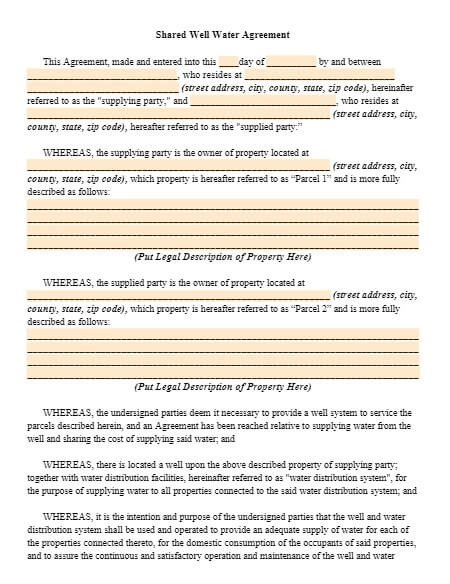
Shared Water Wells in British Columbia
If the thought of sharing your water with a neighbor disturbs you, it may be wise to move on and find another property, regardless of whether or not it’s registered. If the well is on the neighboring property, the wise course would be to safeguard yourself by simply drilling your well if possible.
IMPORTANT: If the property has its well but is near the property line, verify that it is within the boundaries. Regarding water wells, never rely on visible signs such as fences, hedges, or walls to determine ownership.
Many property owners have found—too late—that their existing or newly drilled well is on their neighbor’s land. If a well is situated—or a potential drilling site identified—close to the property’s boundary, it’s worth the time and expense to get a proper surveyor’s report.
There has never been an established horizontal setback for water wells from property boundaries in British Columbia, I tend to use a 10′ rule when we get that close while drilling to a boundary.
While not all wells are listed since registration was voluntary until February 29, 2016, BC’s Well Search provides a comprehensive list of over 120,000 wells drilled in the Province although there may be over a million water wells in service in the Province. The BC Wells database includes well construction date, depth, yield, and other information.
Get to Know the Neighbours
One of the best ways to learn about water issues is to talk to the neighbors. They’re often familiar with the water well quality and yield of surrounding properties and can be a veritable gold mine for understanding the actual state of water in the area.
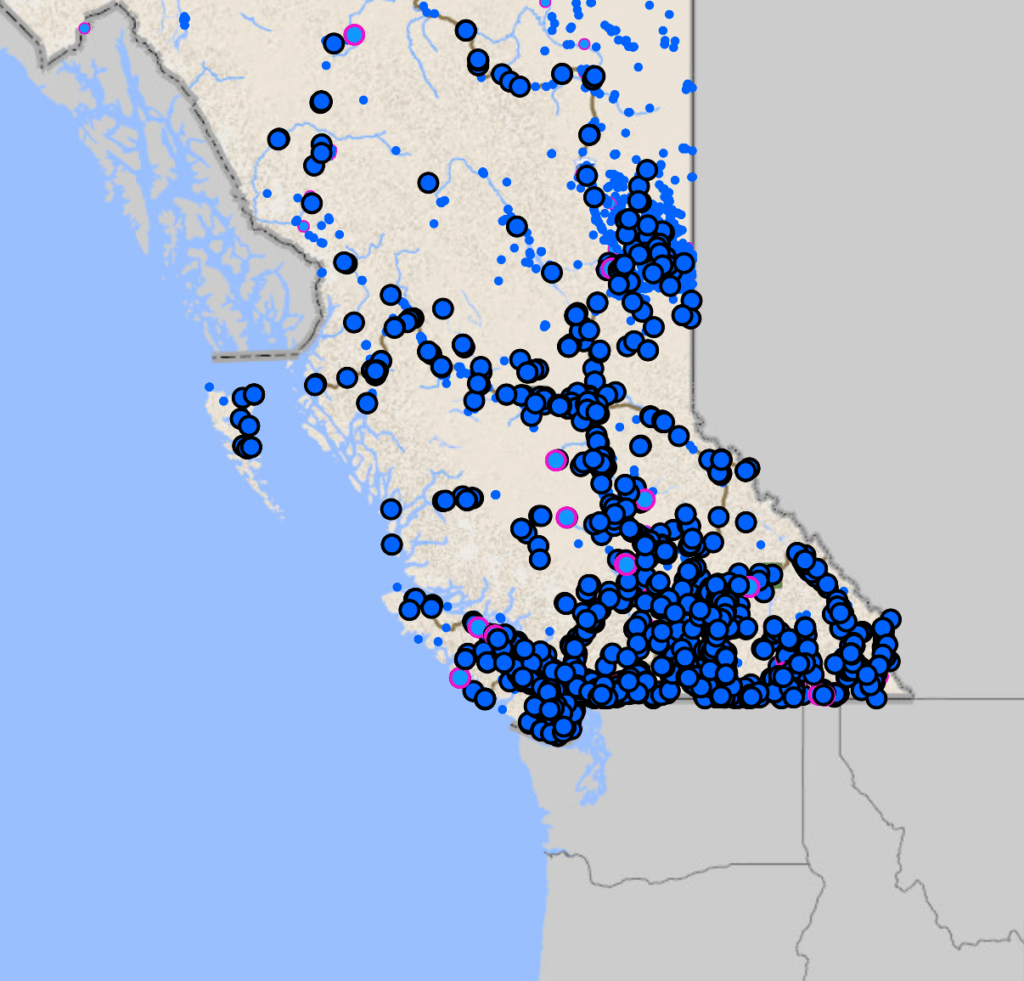
Making an Offer on BC Land for Sale
Now that you’ve identified a property and done your due diligence, the next step is putting in an offer. Unanswered questions about the water situation—or a lack of water—don’t have to be a deal-breaker. However, it will most likely affect the offer you make and the conditions of the sale.
The most important thing is to put in an offer, including any conditions that you feel are needed to protect your interests. It’s common for a purchaser to feel pressured to put in an unconditional offer for fear of losing out in a hot real estate market. Only after occupying the property do some owners discover what “unconditional” means.
When it comes to water, do you want to take a chance?
While buying a property without a water well producing the desired yield isn’t a problem, drilling a new well may easily set you back $20,000 or more. But with all the other expenses involved in a move, is that something you want?
Make Your Offer Clear
If you have any concerns, don’t be afraid to make a conditional offer with a “subject to” clause verifying the availability of sufficient water supply and inspection of the existing system. Condition clauses can easily be removed, so be persistent and don’t sign the offer until it covers all your concerns.
During the due diligence process, you probably asked lots of questions and got lots of answers. Now—with your money on the line—disregard everything you heard. If you don’t already have copies of the documentation referred to in the previous section, ask the seller to disclose anything and everything related to the property’s water supply, including:
• A copy of the well record
• A history of the well being pumped dry
• Water quality test results
• Yield test or flow results
• Closed wells on the property
• Water licenses for wells drilled for non-domestic usage
• Registered agreement for shared water rights (if applicable)
If all the answers are positive, ask the seller to warrant the history of the well. If there have been no issues, they’ll be happy to agree.
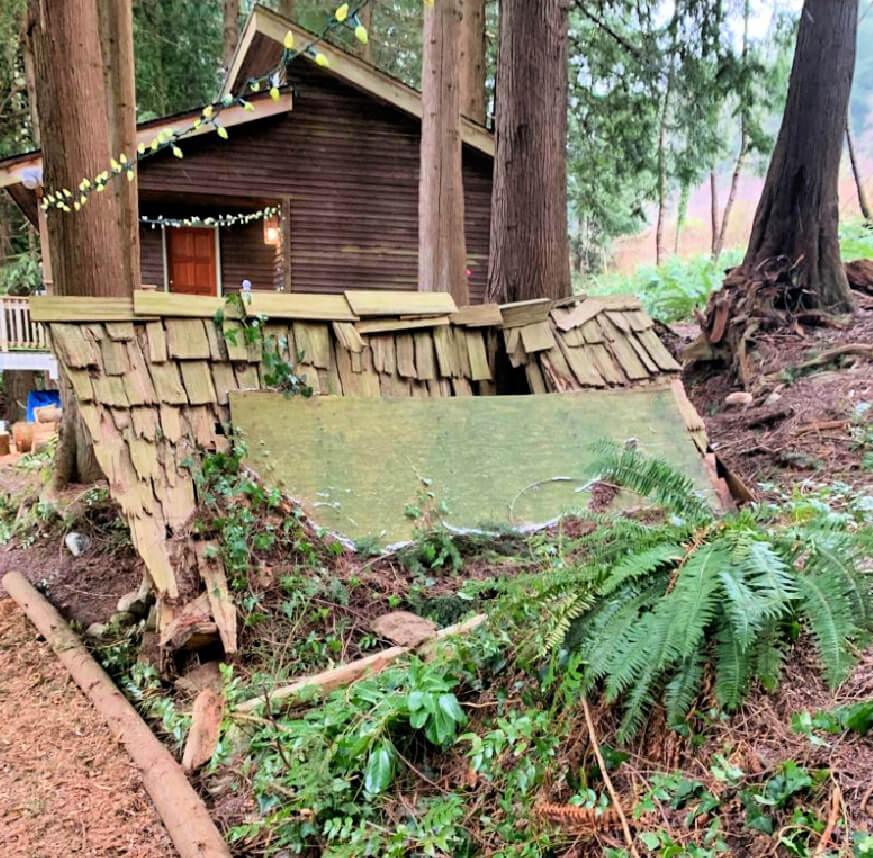
Water Well Inspections
It’s recommended that all offers on properties not attached to a municipal or community water source be made subject to a complete water well system inspection and satisfactory water sample results. If you’re applying for a mortgage, the lender may require a water well assessment and water analysis to ensure the well complies with Canadian and British Columbia drinking water guidelines. Disclosure laws and customary real estate practices may also govern water well and drinking water issues.
Even if everything looks above board and you don’t require a mortgage, make your offer conditional on a water system inspection. It may set you back around $1000, but it’ll give you peace of mind. If a purchaser knowingly purchases a property without a secure water source, they are fully responsible for the costs of locating and drilling for water. If a seller sells a property without an adequate water supply, they are responsible for providing full written disclosure. If not, they may be liable to legal actions initiated by the purchaser.
If tests determine a new well is required, the best thing is for the parties to negotiate the drilling costs before going any further.
Closing the Real Estate Deal
When you made an offer on the property, your realtor should have added a clause that allows you to go back to see the property before closing and a warranty confirming all appliances and systems will be working upon taking possession.
You’ll need to arrange a time with the seller for a pre-closing inspection of all the appliances, heating, plumbing, electrical, and water systems as close as possible to the closing date. Ensure the seller has completed—or is scheduled to finish—everything they promised before you close. Verify that anything related to the water system—including digging a new well—agreed upon has been done. You should also be allowed to complete water quality and yield tests.
Refer to the completed home and water inspection documents before removing the conditions attached to the offer to purchase. Ensure the home and water system’s current state complies with what was discovered and any remediation agreed upon. If there are any changes between the contract and closing, negotiate with the seller for the necessary redress and immediately inform your agent and lawyer.
Looking After Your Water Supply
As the owner of a water well, you are responsible for the quality of the water. As a result, it’s essential to care for and maintain your well correctly.
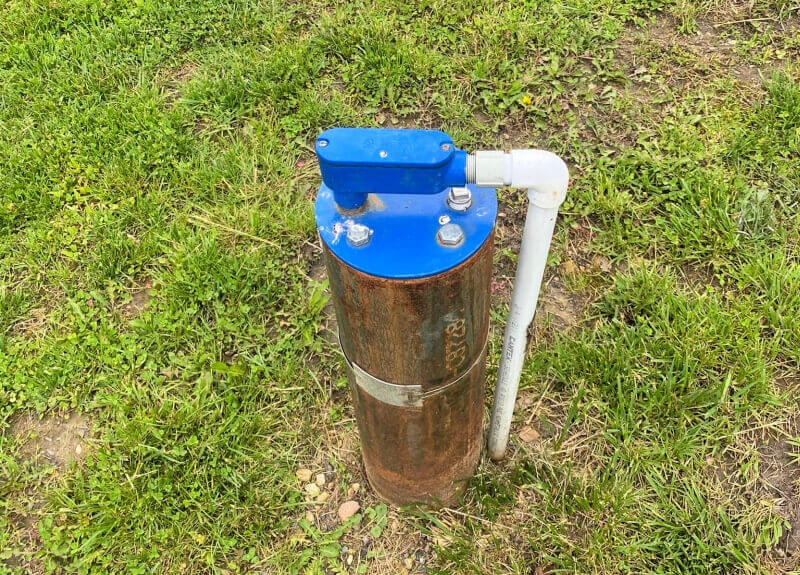
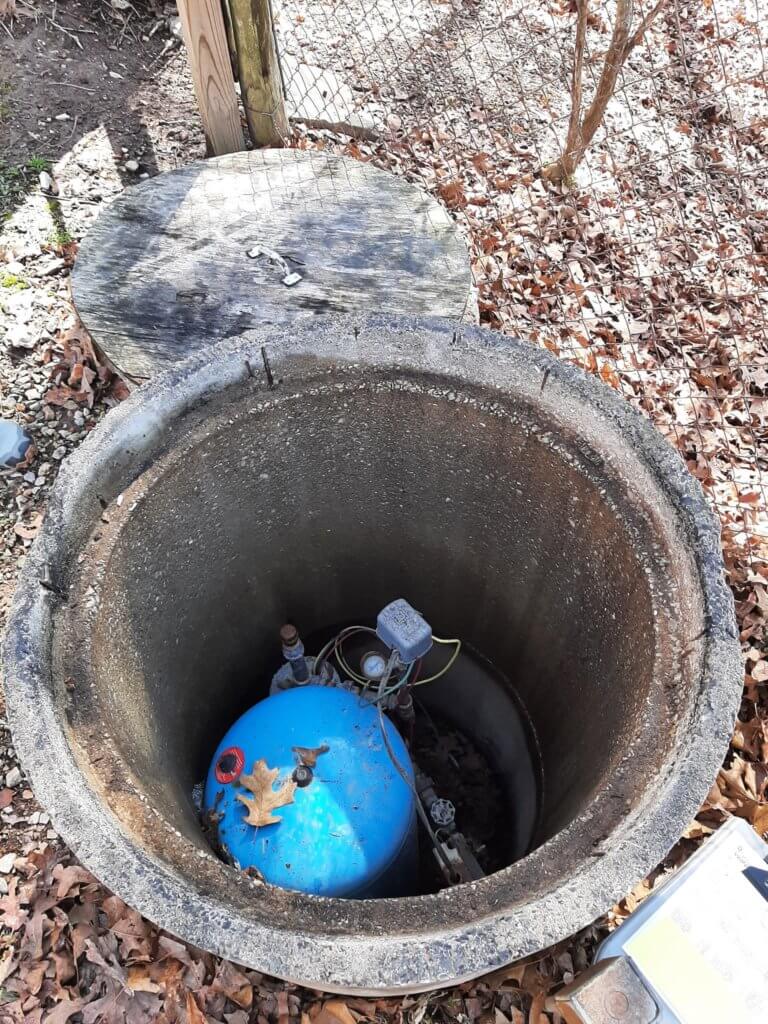
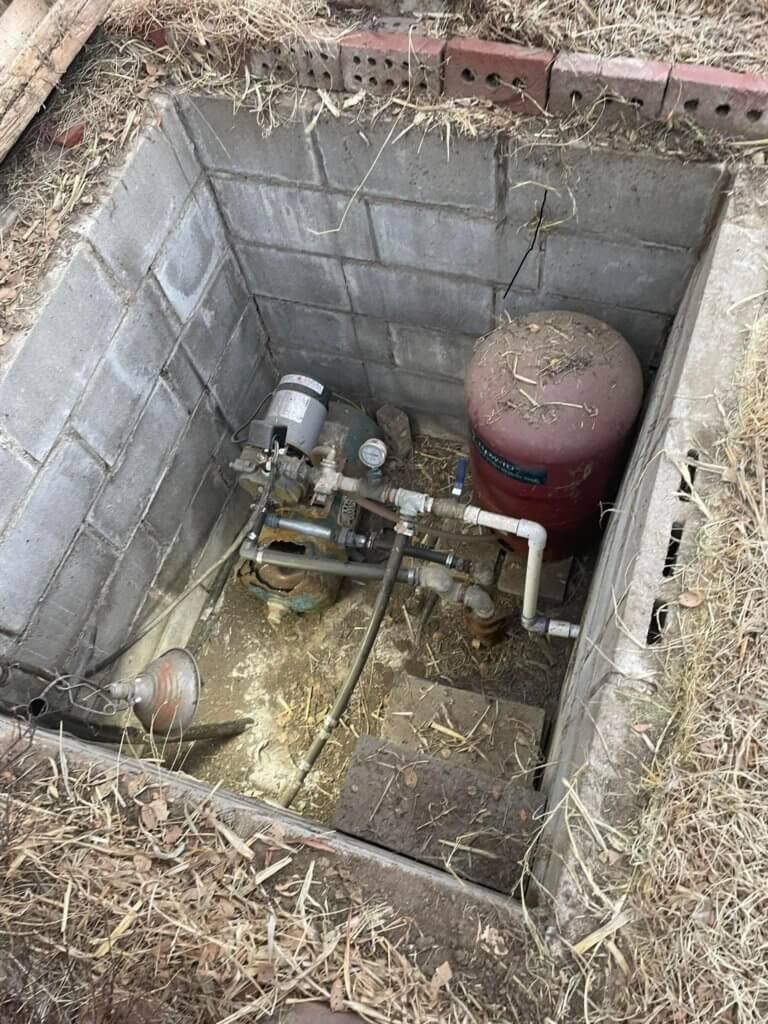
Care and Maintaining of a Water Well is Important
As the property owner, you may perform some routine maintenance. Still, a registered well driller must carry out most of it to protect the groundwater supply from contamination as required under the Groundwater Protection Regulation. Maintenance may include the following activities:
• Removing a well from a pit
• Constructing, maintaining, or decommissioning a dug well
• Constructing, maintaining, or deactivating a drilled well
• Ensuring the structural integrity of the well and the surface seal
• Replacing a well cap or cover
• Disinfecting your well
• Building and maintaining a pumphouse
• Maintaining clear access to the well
• Ensuring floodwater does not flow into the well
You may have to drill a new well if you purchased a property without a secure source or your wells run dry.
What Does It Cost To Drill a Water Well?
The cost to drill a well in British Columbia has increased significantly, so if you’re going to drill, you need to know where to drill before the well driller arrives on site! The final price varies depending on the location, depth, and typical costs of drilling a well. Some well drillers have a fixed minimum price for the first 100 feet, with a price per foot for anything beyond that. If you’re in a remote or difficult-to-reach area, additional costs may apply.
“I’ve heard story after story of people spending thousands of dollars—some most of their savings trying to find water on their properties.”
— Evelyn Bedard, Bedard Ranch, Hefley Creek, BC
There are additional well drilling costs for the annular seal, drive shoe, pitless adapter, well liners, pump test, stainless steel screen, and developing the well further to increase yield (Note: if you don’t understand all the terminology, you’re not missing anything it’s all part of water well construction).
Finding a productive well also means digging a trench for the power and waterline and investing in a water pump according to the well’s depth and flow. And if the well production is low, you’ll probably need to purchase a cistern costing $2500 or more. You don’t want to experience water well costs if you purchase BC land for sale and then discover that you have a major water well issue once you have taken possession.
A recent article about the Maple Ridge Well Drilling Cost provides a good example of the cost to drill a well in the rural areas of BC.
Drilling for water is a long-term investment, so don’t drill until you know where to find water! Always use a certified BC well driller when planning a new water well.
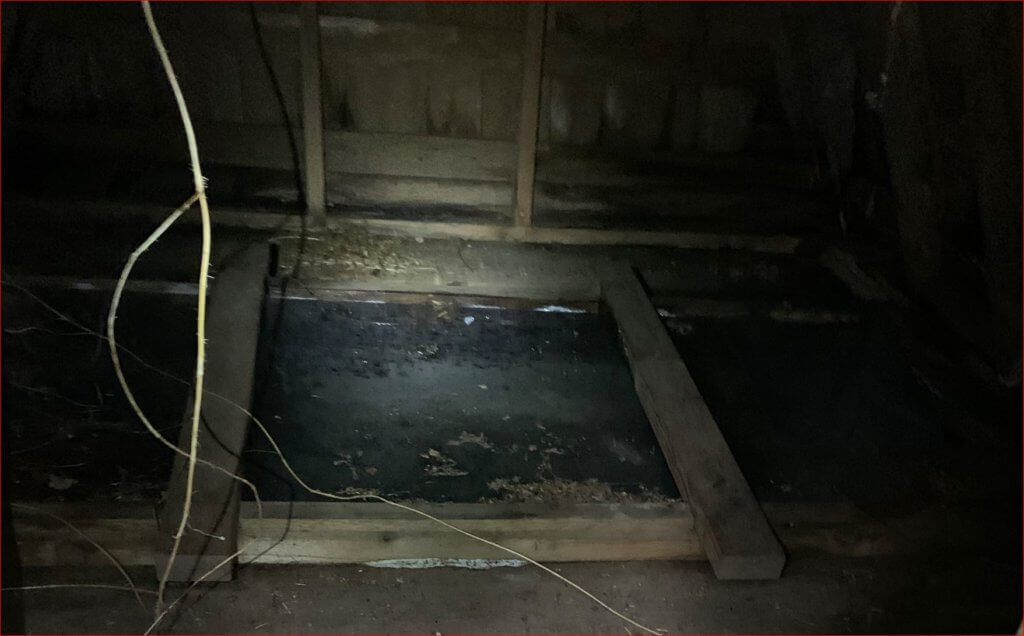
Testing the Quality of Your Water
British Columbia property owners relying on wells for potable drinking water are also fully responsible for testing the water from their private water well regularly to make sure it is safe to drink.
According to Canada’s government, disease-causing organisms leach into groundwater through surface runoff of fertilizers, manure, pesticides, and nitrogen, finding their way into shallow wells through coarse-textured soils. Forestry, manufacturing, mining, waste disposal, and runoff from urban areas also contribute to declining water quality. As a result, “the risks associated with ingestion can be very high for rural families who rely on untreated drinking water sources.”1
Are you serious about the health of yourself and your family? There are water testing labs service applying toxicological and epidemiological research to give you an accurate contaminant profile of your water, along with unbiased treatment matching and up-to-date health risk analysis.

Seller Beware: Before You Put Your Property on the Market
Private water wells often offer a safe, modern, and affordable clean water source, with the homeowner controlling the water supply. So many people would love to have a water well on their city properties.
As a property owner, ample evidence of abundant quality drinking water increases your rural property’s marketability. And even if your water supply is sufficient rather than plentiful, the quality of your water can be a decisive influencing factor in favor of your property in an increasingly water-aware buyer market.
As a seller, imagine the thrill when your agent calls and tells you that someone’s made a great offer on your property. But what happens to that joy when you’re told the offer is conditional on water quality and yield tests? Do you get a sinking feeling in the pit of your stomach? Or is it like water off a duck’s back?
The answer to that is whether you’ve checked your water or not. With some buyers of BC land for sale being far more informed and agents’ reputations on the line, you might put yourself in the shoes of the buyer before you place your property on the market:
• What tests are needed to prove the quality and flow of my water?
• What documentation will a serious buyer need to verify an ample potable water supply?
• What will I do if I find a problem with my water supply that needs to be addressed?
• If I can’t remediate the problem, what solutions will I offer to win over a potential buyer?
Now—with your future on the line—make sure you have everything a buyer needs in terms of tests and documentation relating to your property’s water supply, including:
• A copy of the well record
• Is there a history of the well being pumped dry?
• Water quality test results
• Yield test or flow results
• Closed (decommissioned) water wells on the property
• Water licenses for wells drilled for non-domestic usage
• Registered agreement for shared water rights (if applicable)
Complete Your Water Well Documentation
Note: Water testing often produces bad results—such as high coliform or fecal/E. Coli contamination because of inadequate sampling procedures. Don’t allow anyone—and never a realtor—to sample your well unless they know what they’re doing and are experienced with water systems and sampling.
Instead, do it yourself following the exact procedures and water testing kit instructions from a certified British Columbia water testing lab; you will have your lab report available that may become valuable as you move closer to an offer being accepted on your property.
To increase the chances of having a profitable, problem-free sale, ensure your water file is complete before you put your property on the market. And if you know you have a water well issue, be prepared to resolve it or fully disclose it before the sale.
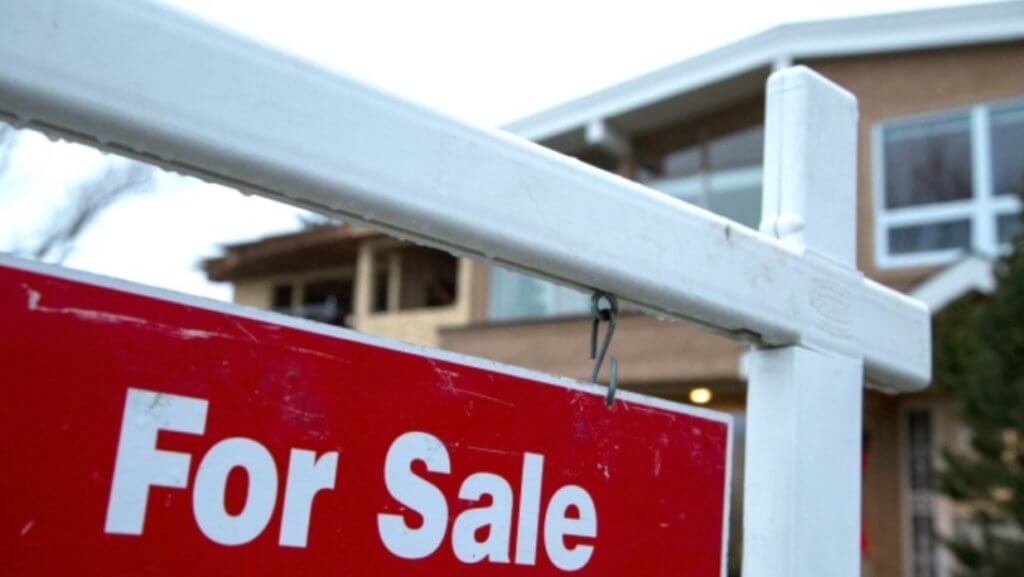
Agent Beware: Before you sign a buyer or seller request documentation
Rural real estate agents are generally pretty good at what they do. Some of them have studied the topic of water, water wells, and BC regulations extensively, providing a solid basis for trust. Unfortunately, that warm and fuzzy feeling your client had may suddenly disappear when you stop returning phone calls about the dry well on their recently purchased property leaving them in often a very difficult situation. If they tell enough people about it, your reputation and livelihood may well be on the line.
Before taking on a client or showing a buyer a property with well water, put yourself in their shoes and find the answers to the following questions:
• What tests are needed to prove the quality and flow of the water?
• Who will conduct the water well tests to guarantee accurate, unbiased results?
• What documentation will a serious buyer need to verify an ample potable water supply?
• What should I recommend if the tests find a problem with the water supply that needs to be addressed?
• What resolutions have proved successful to ensure a smooth transaction if there is a problem with a water well or septic system?
Whether representing the buyer or seller, you are invested in them and their families for years. Protect their interests and your reputation by doing the homework. Ensure all proper checks have been done and the documentation is in order. And never, ever suddenly become a water well expert who takes water samples on behalf of your client—just because you think it might speed up the sale.
Every realtor’s office should have a zero-tolerance policy for taking water samples. Buyers have successfully sued agents and their salespeople, and—when it happens—commission checks can disappear overnight. So do the right thing and bank your commission check.
Real estate agents provide a very valuable service in British Columbia, but the public deserves to be protected. There are far too many people purchasing BC land for sale and ending up with completely preventable and very costly problems because of non-disclosure often.
Buyer, selling, or enabling
—know everything you can about the water
Whether you’re a buyer, seller, or realtor, what you do can ensure a smooth, stress-free transaction. Regardless of your role, get to know everything you can about the water situation in the area by asking yourself the following questions:
• What tests and documents are needed to ensure a seamless transfer?
• What is the water reputation of the property amongst the neighbors?
• What concerns and issues may need to be addressed and remediated?
By doing your due diligence and preparing the water well system ahead of time, water wells really need not be an issue when buying, selling, or presenting a property in BC.
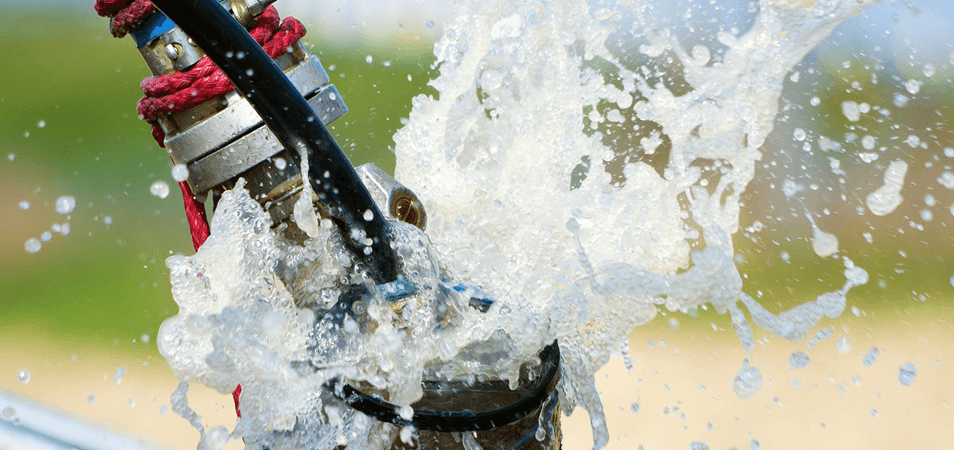

Get a monthly update of our most popular articles directly to your inbox such as Water Well Advice including Water Testing, Well Drilling... what you need to know when buying or selling Real Estate with Water Wells and Septic Systems & other rural living topics!



